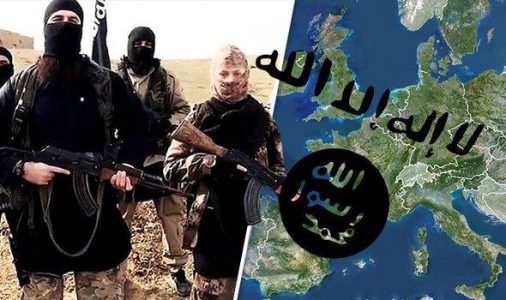
The Islamic State is not defeated and the terrorism threat is growing
Isis and its ideology of violence “has absolutely not been defeated” and the threat of terrorism continues to proliferate with lethal effect, the head of Britain’s military has warned.
General Sir Nick Carter pointed to last week’s attack at London Bridge by freed Islamist terrorist Usman Khan as an example of the grave danger being faced by the public, and stressed that “conditions in parts of the world are not conductive to reducing the growth of extremism”.
In fact the security situation is getting worse, the chief of the Defence Staff held in his annual lecture at the Royal United Services Institute (RUSI) in London. He reminded the audience of his message last year that “instability was the defining condition with threats to our nation diversifying, proliferating and intensifying very rapidly”.
Speaking on Thursday evening, he continued: “So what’s changed? If anything, events over the past 12 months suggest the [situation] has become even less stable.”
Gen Carter’s caution against writing off Isis – a view echoed by other British, American and other western military commanders and politicians – is in marked contrast to Donald Trump’s declarations that “Isis has been 100 per cent defeated”.
The US president has used that argument to announce pulling US troops out of Syria – a move which resulted in Kurdish groups which had fought alongside American and western forces being left to face an onslaught by the Turkish military.
At this week’s Nato summit in the UK, Emmanuel Macron publicly challenged Mr Trump’s assertions on the issue. Speaking of the need to keep confronting Isis, the French president said the “number one priority, because it’s not yet finished, is to get rid of Isis and these terrorist groups … It’s not yet done. I’m sorry to say that.”
Another cause of instability, said Gen Carter, was the aggressive behaviour of authoritarian regimes. “The multi-lateral system that has assured our security, stability and prosperity for several generations continues to be undermined by assertive authoritarian regimes who behave as if their historic right of entitlement is being denied them,” he stated.
There is a return to “great-power competition” and “the challenge for us in the west is that the character of that competition, being conducted by authoritarian opponents, is attacking our way of life and our freedom in a manner that is remarkably difficult to defeat without undermining the very freedoms we want to protect.
“There is a growing consensus that that the idea of ‘political warfare’ has returned. This is a strategy that is designed to undermine cohesion, erode economic, political and social resilience, and challenge our strategic position in key regions of the world.”
Source: Independent





